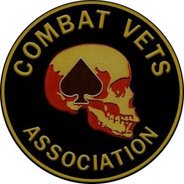Honor the Fallen
Remember Me
USASOC, Families honor memory of fallen SOF Soldiers
Army Special Operations honors fallen heroes with new Memorial Wall
Memorial Day: What you can do (CNN)
Memorial Flags at Arlington Cemetery
 Fm 7-21-13 :: Appendix C :: Section III- Memorial Ceremony
Fm 7-21-13 :: Appendix C :: Section III- Memorial Ceremony
Memorial ceremonies are patriotic tributes to deceased soldiers....
In most cases, the unit prepares a program that may include a biographical summary of the deceased soldier with mention of awards and decorations. The following elements are commonly part of a memorial ceremony:
- Prelude (often suitable music).
- Posting of the Colors.
- National Anthem.
- Invocation.
- Memorial Tribute (e.g., remarks by unit commander or a friend of the deceased).
- Scripture Reading.
- Hymn or other special music.
- Meditation (quiet moment for attendees to reflect).
- Benediction.
- Last Roll Call. This is a final tribute paid by soldiers to their fallen comrade. It has its origin in the accountability roll call conducted by the unit First Sergeant following combat. Although sometimes painful to listen through, the Last Roll is called with the conviction held by soldiers that all unit members will be accounted for, and none will ever be forgotten.
- Firing of rifle volleys.
- Taps.




